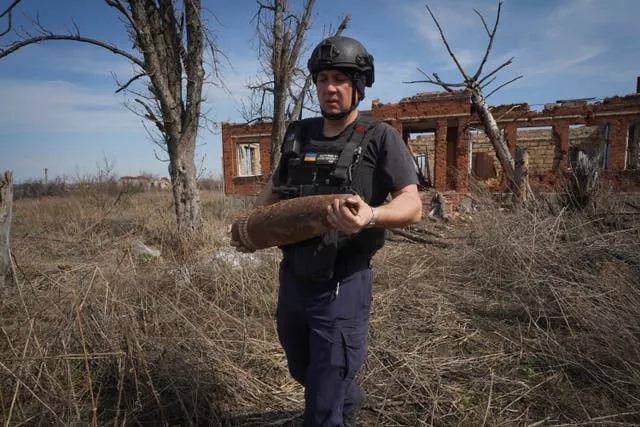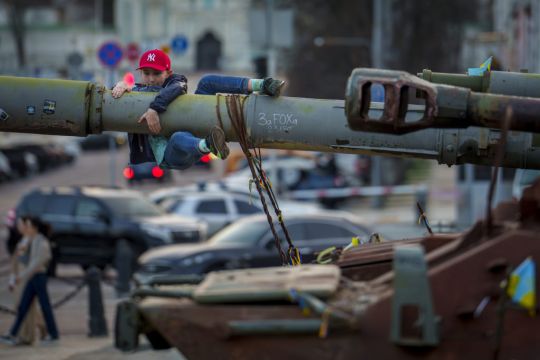Ukrainian drones attacked industrial facilities in the province of Tatarstan, Russian authorities said on Tuesday.
The strike would be Kyiv’s deepest inside Russian territory since the war began more than two years ago.
The attack on facilities near the cities of Yelabuga and Nizhnekamsk, located some 1,200km (745 miles) east of Ukraine, injured 12 people, Russian regional authorities said.

In recent months, Russian refineries and oil terminals have become priority targets of Ukrainian drone attacks, part of stepped-up assaults on Russian territory.
Ukrainian drone developers have been extending the weapons’ range for months, as Kyiv attempts to compensate for its battlefield disadvantage in weapons and troops.
The unmanned aerial vehicles are also an affordable option while Ukraine waits for more US military aid.
Neither side currently has the capacity to make much of a dent on the around 1,000-km(620-mile) front line.
Ukrainian security and intelligence officials said they targeted a “drone-production site” in Yelabuga, Tatarstan, using Ukrainian-produced long-range drones.
Tatarstan is known for its high level of industrialisation, and a factory near Yelabuga has reportedly built Iranian-designed Shahed exploding drones.

The Ukrainian officials also said that intelligence services were involved in an overnight attack on the Nizhnekamsk oil refinery.
It was a rare claim of responsibility, as Kyiv officials normally decline comment about attacks on Russian soil, though they sometimes refer obliquely to them.
Russia has commonly used Shahed drones for aerial attacks on Ukraine, including major barrages deploying up to 90 of them at a time in a bid to overwhelm air defences.
Tatarstan officials said the attack did not disrupt industrial production, while Nizhnekamsk’s mayor said the attempt to strike a refinery was thwarted by air defences.
Russian Defence Minister Sergei Shoigu said Kyiv was trying to divert attention from its military setbacks by attempting to strike the Russian territory “to persuade its Western sponsors that it remains capable to confront the Russian military”.
Speaking during a meeting with the top military brass, Mr Shoigu claimed that Russian troops have gained more than 400 square kilometres since the start of the year.

Kremlin spokesman Dmitry Peskov said the Russian military was taking steps to strengthen defences against such attacks.
“The military is working to minimise this threat and eventually remove it altogether,” he said.
Ukraine has previously launched drone attacks in and around St Petersburg, which lies about 1,000km (620 miles) north of the border. But the facilities in Tatarstan, a province on the Volga River, appear to be the most distant target Ukraine has tried to hit.
In recent weeks, Russian refineries and oil terminals have been targets of Ukrainian drone attacks, part of stepped-up assaults on Russian territory, including long-range drone attacks.
Ukrainian President Volodymyr Zelensky said last year that his country had developed a weapon that hit a target 700km (400 miles) away, in an apparent reference to a drone attack on Russian soil.
Late last year, Mykhailo Fedorov, Ukraine’s minister for digital transformation, said the government was bent on building a state-of-the-art “army of drones” and that its value to the war effort will be evident by the end of this year.
Ukraine trained more than 10,000 new drone pilots last year, he said.
Ukraine has also developed deadly sea drones that have struck Russian navy ships in the Black Sea.
Meanwhile, Ukraine’s air force said on Tuesday that it intercepted nine out of 10 Shahed drones launched overnight by Russia in the latest attack on the country’s power grid.







